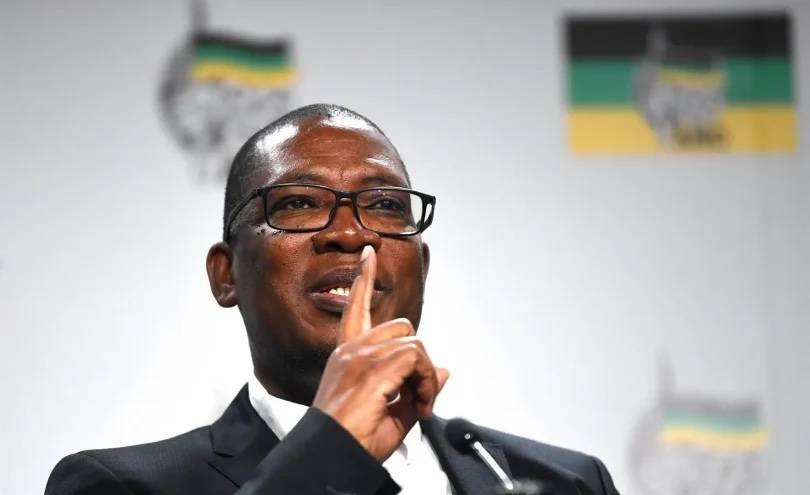
Gauteng Premier Panyaza Lesufi. (File photo)
Gauteng Premier Panyaza Lesufi has expressed concern regarding his government of provincial unity’s crime-fighting strategies, which have failed to stop crime skyrocketing in the province.
Lesufi told a media briefing on Wednesday to mark the government’s first 100 days in office that while the coalition — which includes various political parties under a cooperative governance model — has garnered support from over 80% of the provincial legislature, he was worried about its ability to combat crime.
This comes after statistics released in August showed that Gauteng was one of the provinces where serious and violent crime, including murder, attempted murder and assault, had risen.
Lesufi expressed his dismay over persistent crime, including building hijackings, saying that the situation “keeps me awake at night”.
He rated his cabinet’s crime-fighting efforts at two out of 10, adding that significant improvements were needed.
“We are not doing good,” he admitted, acknowledging a common public frustration.
He said to address the crime challenges, the provincial government had signed a collaborative agreement with national Police Minister Senzo Mchunu aimed at enhancing joint efforts between provincial law-enforcement and local municipalities.
“This agreement will see weekly safety briefings with all municipalities, who have now agreed to provide their CCTV footage to the provincial command centre, including video feeds from private security agencies,” he said.
Efforts to revitalise the Johannesburg CBD have seen 12 hijacked buildings reclaimed through court orders, with title deeds distributed to more than 4 000 families in need of secure housing.
“These initiatives are designed to restore both safety and property rights in one of Gauteng’s most economically active, but troubled, urban centres,” Lesufi said.
On Gauteng’s ongoing water issues, the premier said the province did not suffer from a shortage of water but rather from “systemic challenges”, particularly illegal connections and losses due to ageing infrastructure.
“We are forming a task team of law-enforcement officials dedicated to identifying and disconnecting illegal water connections across the province,” he said.
Addressing concerns around corruption in his government, Lesufi said the administration was transparent and did not have any outstanding reports.
This comes after he was accused of withholding forensic reports that allegedly showed corruption and poor management at the Gauteng department of social development.
Lesufi said the Special Investigating Unit (SIU) should prioritise reviews of officials involved in supply-chain management and finance, crucial positions that could enable corruption, if left unchecked.
“I must emphasise to date, there is no single report, either from the SIU, public protector and auditor general or public service commission, that is outstanding and that was finalised before we took office as this leadership,” he said.
“We are ready. We have received a request through the Promotion of Access to Information Act for the release of the information. We have made this request to the director general with the custodian.”
Lesufi called on the Democratic Alliance (DA) — which pulled out of negotiations during the formation of the provincial unity government — to join it as the ANC was still open to having the party in the coalition.
In July, the ANC in Gauteng formed a government with small parties which included Rise Mzansi, the Patriotic Alliance and the Inkatha Freedom Party.
“We have a good relationship with ActionSA. If the DA feels it wants to be part of this government, we are more than willing to open our door. If the DA feels that the demands they were putting have been reviewed and now want to work with us … it makes things easier. We have not closed anyone outside,” Lesufi said on Wednesday.
Despite critics arguing that the provincial government would struggle to get bills and budgets passed, Lesufi said the coalition partners had managed to pass the Gauteng Provincial Appropriation Bill on August 1, directing R165 billion towards critical provincial needs.
“This bill represents the [government of provincial unity’s] commitment to tackling the immediate service delivery requirements of our communities,” he said.
Eyaaz
mg.co.za
